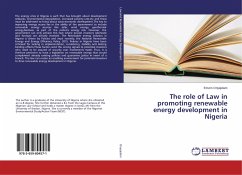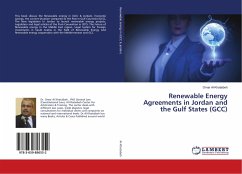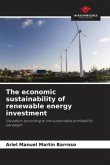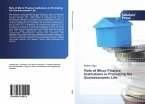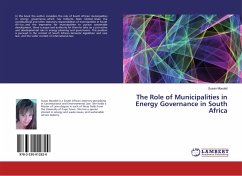The energy crisis in Nigeria is such that has brought about development setbacks, environmental degradation, increased poverty rate,etc and these must be addressed to bring about socio-economic development.The key to improving energy access lies in the ability of the government to include renewable energy sources like solar, wind energy, geothermal energy,biomass, as part of the nation's energy mix. However, the government can only achieve this feat where private investors (domestic and foreign) are actively involved. The Renewable energy industry in Nigeria is driven by Policies and most recently, the National Renewable Energy and Energy Efficiency Policy, 2015. Policies in Nigeria have been criticised for lacking in implementation, consistency, stability and lacking binding effects.These factors send the wrong signals to potential investors who need to be assured of security over investments made. Thus, it is therfore pertinent to have a legislation on renewable energy that would complement already existing policies and guarantee justice in event of a breach. The law can create an enabling environment for potential investors to drive renewable energy development in Nigeria.
Bitte wählen Sie Ihr Anliegen aus.
Rechnungen
Retourenschein anfordern
Bestellstatus
Storno

